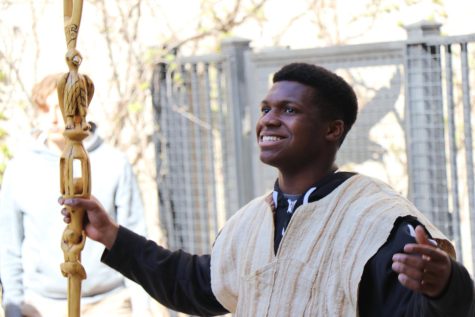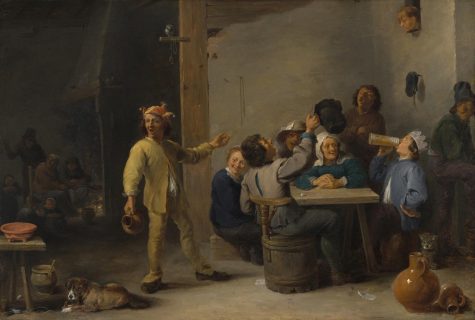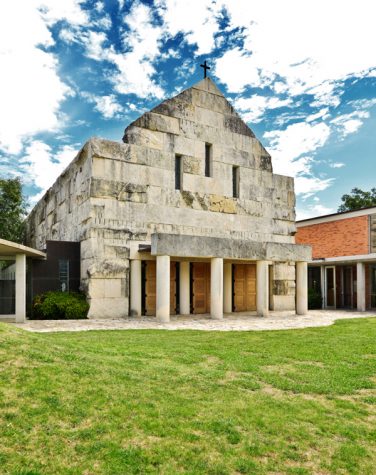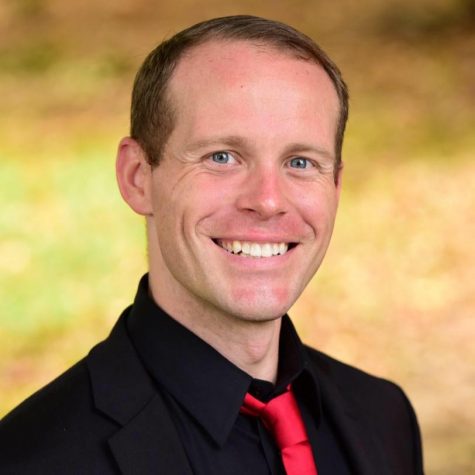Fr. John’s Letter to the Editor

Monk by the Sea, by Caspar David Friedrich (1774 – 1840)
Dear Editor,
In your last issue, an article on social media and mental health appeared above an article on community service. That got me thinking. I’d like to share a short meditation to connect these articles and, hopefully, to inspire us to serve.
I think of “community service” as a secular catch phrase for what is ultimately the life of charity. Charity draws us out of ourselves and pushes us to live for other people. We find our lives by giving them away, like Jesus (Mt 10:39, 16:25; Mk 8:35; Lk 9:24; Jn 12:25), whose essence is, as Pope Benedict XVI put it, “pro-existence” or “existence for” – for others. He is not closed and self-protecting like a stagnant reservoir. Instead, he lives like a roaring river rushing through time and space to give life to others.
When we live this way, we inevitably encounter suffering and weakness in others and in ourselves; and thus we are forced to wrestle with the biggest and deepest questions of life. What am I here for? Where does meaning come from? Why do we suffer? What is the good that makes all things beautiful?
When we engage these questions we take up a new mode of thinking. We stop looking at the “things” in our lives (our possessions, grades, mistakes, reputations and so on), and we start asking about the horizon within which they all sit – the view that gives each thing its place in light of what is most important. And that’s a good thing, because the horizon is truly beautiful and marvelous to behold.
Isn’t it remarkable how gazing at the seemingly infinite ocean, or at the dark recesses of space, can bring us deep peace by giving us perspective and orientation? Charity and prayer are that gaze in the spiritual life. They are a gazing into the biggest oceans and the deepest recesses, which include our personal or spiritual life, our freedom and knowledge. Everything we will and know stands within an infinite “greater” – a horizon that transcends us and so grants perspective and orientation.
If we never look at the horizon – if we never see the “sky” of our spiritual lives – then we lose our place. If we never ask the biggest and deepest questions, then we lose our orientation existentially. Now, I’d like to make a point about social media and mental health. Today we are tempted “to find our lives” by obsessively filling ourselves, like stagnant reservoirs, with little pleasures. Our click-bait culture always frenetically fixes our attention on something to consume, and never on the horizon.
But the truth is that we are happier only if we can see the horizon. So, look for chances to pray and to become absorbed in the truth, beauty and goodness that surround us by gift of our Creator. Learn to suffer and to wrestle with the questions whose answers give lasting meaning to our lives. Don’t trade all silence for noise. Don’t fill every second with checking newsfeeds and status updates. Instead, order yourself by the horizon. Unify your life under the limitless sky of love. Join others in their suffering and discover your true happiness. You will find the key to your life in the grateful eyes of those you serve. For you will understand your life for what it truly is: a smiling invitation from God to be responsible for others and to live for love. And like casting rocks into the ocean, you will learn to cast all your cares into God, who can integrate your every success and disappointment into his plan for our happiness.
Finally, do you want some good spiritual reading to help you find that horizon in your life? Check out A Mind at Peace: Reclaiming an Ordered Soul in an Age of Distraction by Christopher Blum, and Humility Rules: St. Benedict’s Twelve-Step Guide to Genuine Self-Esteem by Augustine Wetta.








